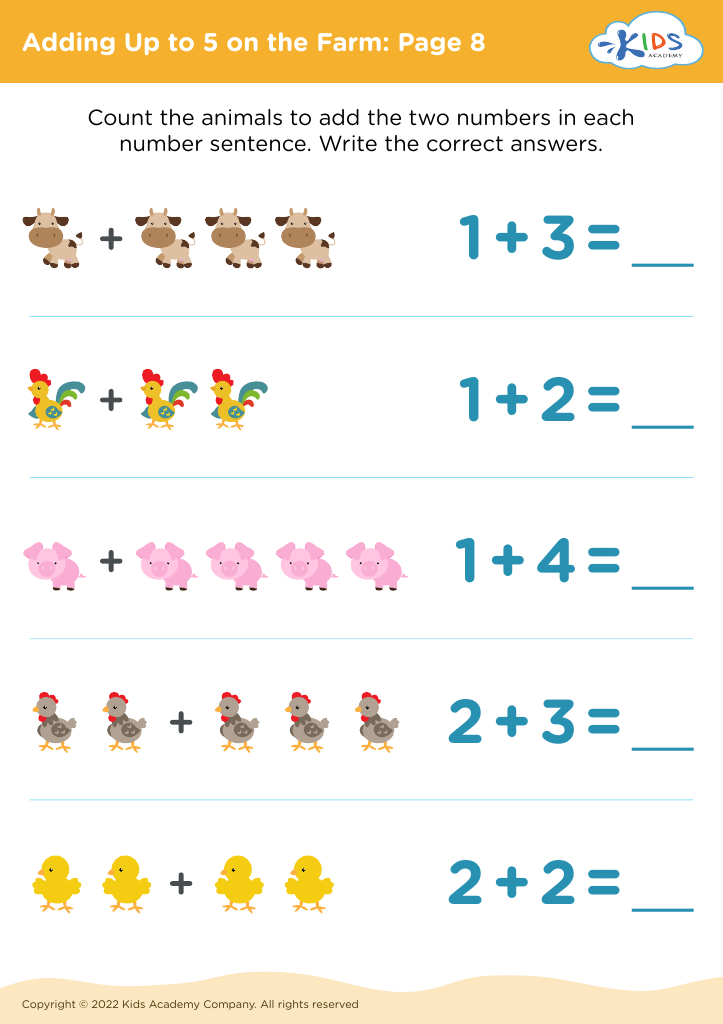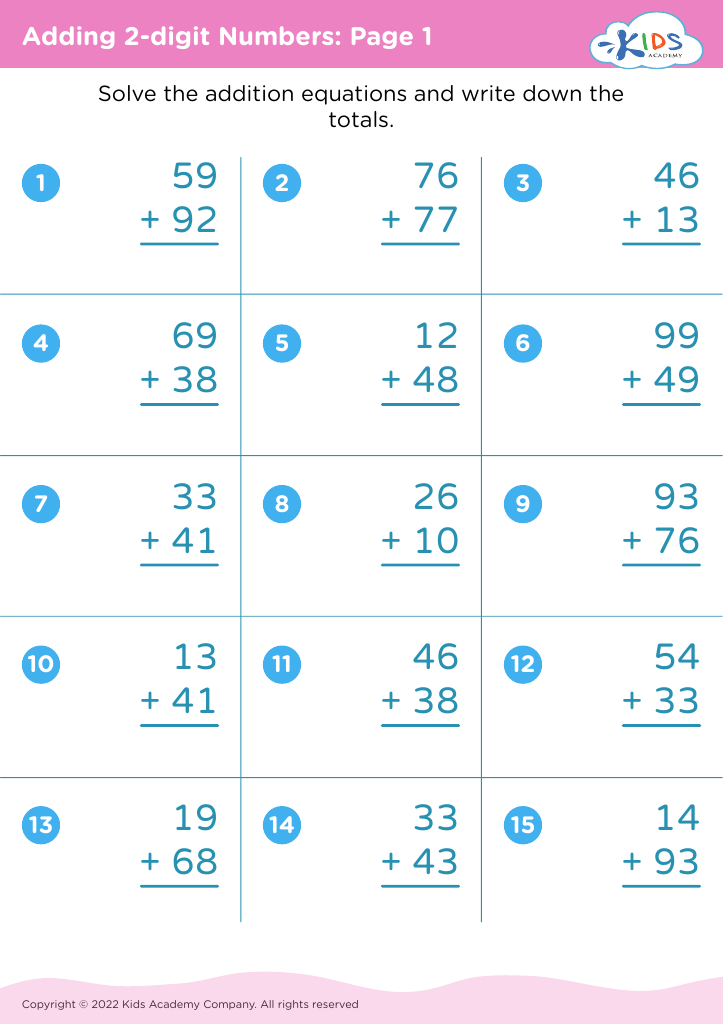Developing counting skills Addition & Subtraction Worksheets for Ages 3-8
3 filtered results
-
From - To
Unlock your child's mathematical potential with our engaging Counting Skills Worksheets designed for ages 3 to 8! These interactive resources focus on developing essential counting skills that lay the foundation for addition and subtraction. Tailored to young learners, our worksheets feature colorful visuals and fun activities to make learning enjoyable. By practicing counting objects, recognizing numbers, and mastering basic arithmetic, children will gain confidence in their mathematical abilities. Perfect for homeschooling or classroom use, our worksheets promote a hands-on approach to math education, ensuring a solid grasp of counting that will serve your child well in their academic journey. Start exploring today!
Developing counting skills, as well as addition and subtraction, is crucial for children aged 3-8 for several reasons. Firstly, these foundational skills are essential for everyday life. From simple tasks like recognizing how many apples they need to buy, to understanding change while shopping, counting, addition, and subtraction directly impact their practical decision-making.
Moreover, mastering these skills enhances cognitive development. Engaging with numbers fosters critical thinking, problem-solving abilities, and improves a child's overall mathematical understanding. When parents and teachers emphasize counting and arithmetic, they lay the groundwork for more advanced math concepts later on, such as multiplication and division, as well as understanding measurements and data interpretation.
Additionally, these skills build confidence. When children successfully learn to count, add, and subtract, they experience a sense of achievement. This boosts their self-esteem and motivates them to take on new challenges in mathematics and other subjects.
Lastly, incorporating play and real-world applications during math learning makes it enjoyable. Whether through games, counting objects, or solving simple problems in context, parents and teachers have the opportunity to create positive experiences around math, encouraging lifelong engagement and curiosity about numbers. Therefore, investing in these early mathematical skills is essential for a child’s holistic development.



















